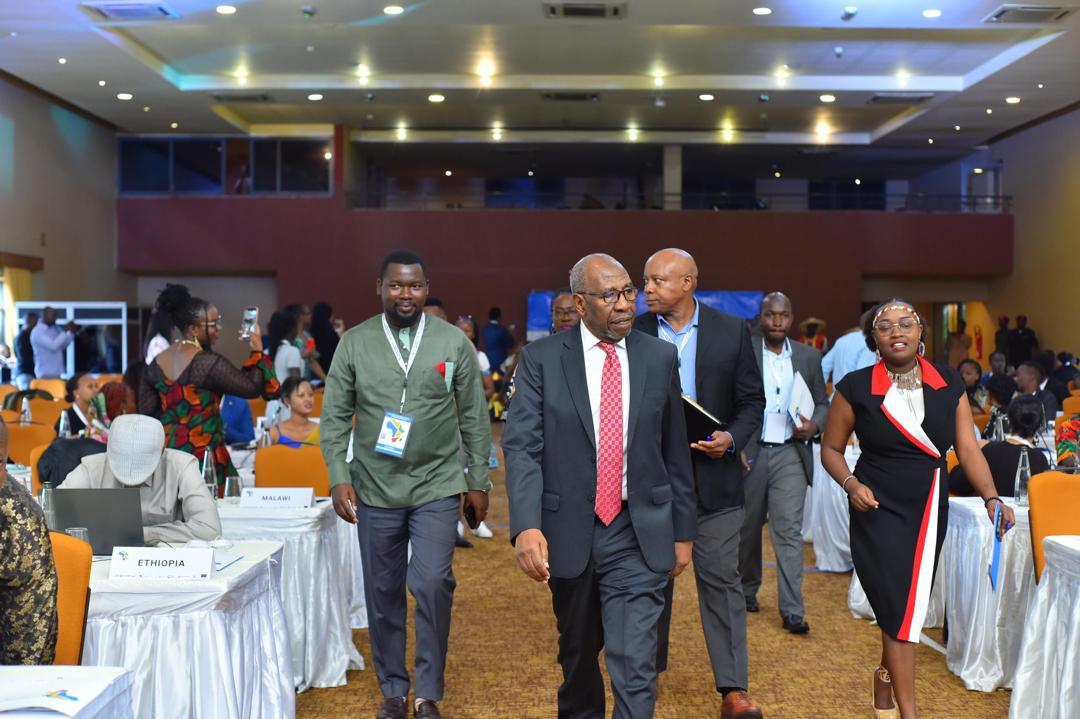Prime
Part time teachers a challenge to learning

EXPOSED: Education State Minister Kamanda Bataringaya (second right) addressing students of Kakira High School in Jinja. Looking on is government Chief Whip Daudi Migereko (R). Teachers often teach in several schools to make ends meet.PHOTO by WILLIS OMITH
Kampala
The year was 1997. Senior 3 students of Kakira High School were shocked when their Physics teacher, Mr Moses Mulolo, who was stepping out of the class, suddenly stopped, jumped through the window and sprinted away.
Hours elapsed before students learnt that Mulolo had been running away from the visiting head teacher of Kakira SS which employed him. His official employer barred staff from teaching in multiple schools and those discovered were summarily fired.
The practice of teaching multiple schools generates mixed reactions, depending on a particular school’s administration. While some schools allow it for some reason as long as a part time teacher will always report to class, others, especially traditional government-aided schools, maintain a strict ‘no’ to the practice.
Patrick Musomesa (not real name), who now works with an NGO in western Uganda was until recently a teacher. The Physics and Mathematics teacher, juggled between five different secondary schools. He taught at Naalya SS, two schools in Seeta, one in Bweyogerere and Bishop Kihangire SS in Luzira.
To justify his action, he said, “I crossed the Nile to come here to make money and that is exactly what I’m doing now.” As shocking as it sounds, to many teachers, the vocation is just another form of business, where the customer (student) is secondary to the businessman’s goal.
Tough policy
Nabisunsa Girls School’s director of studies, Mr Mustafa Miiwa, says they do not tolerate that practice as their teachers are employed by the Ministry of Education. “We’re aware of that practice and weary of it too,” he admits glumly. “Our teachers report in the morning and only leave at the end of the day, so anyone staying away from school, even for a few hours during working hours has to get permission.” He says the practice corrupts standards as it infringes on a teacher’s ability to focus. “Such a teacher will be teaching in one school, with his mind on how to get to the other school in time.” However, it is a known fact that hundreds of teachers find ways to get extra pay by teaching in other schools.
Jinja Secondary School’s Hajji Hassan Menhya blames the influx of the habit on the meager pay teachers get. Menhya concedes that the practice is a necessary evil. “Sometimes a school may run short of teachers, say due to illness, and yet the ministry always takes long to allocate or fill the vacancies left,” he says. “In such a case, a school can improvise by hiring a part time teacher to stand in.”
Menhya, though, says the practice is more common in private schools that operate for profit with no regard to academic standards. These are usually small schools struggling to get on the radar. He also says that some schools, even prominent ones, find it difficult to let go of some teachers who they reckon have enough experience in their specialties.
Universities have also been grappling with the issue of part time lecturers with some like Makerere trying to stop them. However, the persistent lack of enough funds to pay lecturers full time, makes them rely on part-time lecturers who are cheaper.
Mehnya says teaching in multiple schools gives teachers a suffocating workload. He argues that it is important for them to maintain a balance between contact hours, assessment of students and preparation of lessons.
Mr Jamali Adomati, a teacher at East High School in Ntinda, admits to having nursed the dream of teaching multiple schools. But once in the system, he says, he realised it was next to impossible. “We are recommended to teach 21 periods per week and each period is 40 minutes. That brings you down to 14 hours a week. It is practically impossible to go ahead and teach more schools if you are a full time teacher,” he says.
Monetary motivation
Teachers who are inclined towards making money normally disregard such advise and end up overworked and fatigued. The end result is poor assessment, poor teaching and poor results. “Teachers are supposed to set tests, assignments, mark scripts and correct students, and ultimately, have enough rest to remain stress-free,” says Miiwa. “But when you teach multiple schools, you are not even going to have time to mark scripts, let alone give your class corrections and in the end you will avoid giving students assignments and tests.” But Musomesa is adamant ‘professional’ teachers have adapted to the workload well enough. He says students performed well in each of the schools he taught in, and none of them wanted him to leave.




